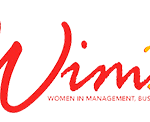In this series, we have so far covered what supply chain management is, its benefits, elements, some factors to be considered in developing supply chain strategy and the interlinkages between supply chain strategy and supply chain plan. Today we will conclude the series by discussing supply chain procedures and supply relationship management.
Supply Chain Procedures: Beyond having a supply chain strategy, we must have a set and series of procedures if we are to succeed in executing our plans. A supply chain ‘standard operating procedure’ (‘SOP’) are systemic instructions conceptualised, developed and formalised to guide workers in carrying out routine and non-routine duties and operations.
- How NRC ignored warnings on planned attack on Abuja-Kaduna train
- NIGERIA DAILY: Is Boycotting Election An Option To Solving Insecurity In Nigeria?
Supply chain SOP is developed to help achieve overall corporate objectives. SOPs cover approval authorisations, risk management measures to minimise supply chain vulnerabilities, minimise costs and maximise value at each node and stage, achieve required quality standards, minimise handling of goods as well as keep proper documentation, etc. Answers to pertinent questions must be provided on:
• Demand forecasting: How do we reliably forecast demand? Who/what department should do that? How often should that be done?
• Raw materials and supplies’ requirements: Given the demand forecasts that we have, what raw materials and other supplies do we need? What are the lead times for each supply? What should be our buffer stock and, therefore, reorder levels? How many alternate suppliers should we have for each material? Who/what department is to be responsible for ordering, receiving, storing and releasing raw materials/supplies?
• Production: Who/what department should be responsible for taking production orders? What are the lead times for production? Are there clear production records from receipt of raw materials and suppliers to manhour input, work-in-progress and finished goods records?
• Logistics: Who/what department shall be responsible for inward logistics from suppliers and outward logistics to customers?
• Managing exceptions: Who/what department shall be responsible for sending out and taking in returns? What accounting entries must be passed?
• Procurement management: Who/what department shall be responsible for overall coordination of procurement activities? Are there complete records for each activity? Are contracts with suppliers duly documented, current and valid?
• Sales management: Are sales contracts duly negotiated with the best interests of the company at heart? Are the sales contracts documented into legally binding agreements? Are sales records, from orders, to deliveries, invoicing, and payment receipt all properly and fully documented?
Supply Chain Relationship Management: Managing supplier and customer relationships is very critical to business success. It is about developing, managing and growing supply chain alliances with a view to creating value systems that are mutually beneficial to all. The philosophy behind a wise supply chain relationship management is to realise and act on the basis that the success of all organisations along the supply chain is key to your own success.
Up to the late 1990s and even early 2000s, laptops were not entirely common in our country. As rooky IT entrepreneurs, we began to get orders for the supply of laptops from a major client. Whilst we had funds to meet part of what was beginning to become a very regular order, we certainly didn’t have all the funds we needed to procure and supply all the laptops all the time.
We came across a supplier whom we convinced to make available the laptops to us against our 30-day post-dated cheque. The kind supplier obliged. On the other side of the equation, we were able to convince the client to make payments to us within two weeks. Consequently, we never failed to pay the supplier by the time the post-dated we issued was due for presentation. To reciprocate and further bond our good relationship, we directed other laptop buyers to the supplier. We went on to have a mutually rewarding relationship with the supplier for several years. Everyone was a winner.
There are about five foundations for building and managing supply chain relationships.
Integrity: For a long term and rewarding relationships with supply chain partners, the entrepreneur must always come clean. If you need raw materials on credit from your supplier, ask for that, negotiate and commit to when you settle the bill. Once you agree on a payment date, you must do everything legitimately possible and/or necessary to discharge your obligation by the agreed date. If you can establish a reputation of keeping your word, you will get all the support you may always need in business.
Be professional: You must be dispassionate in the evaluating vendors that supply goods and provide services to you. Depending on your type of business, you may also need a firm assessment of your customers as well. Regardless of your business size, make sure that both your suppliers and customers take your business seriously.
Long term perspective: Having a long-term perspective is key to building sustainably successful relationships. This involves aligning, sometimes competing, interests in a way that everyone wins.
Competence: Most businesses are significantly all about supply chain management. To succeed in building great relationships with your suppliers and customers, you must be able to deliver results. Be good at what you do and both prospective customers and suppliers will be referred to you.
Dedicated team of staff: A non-negotiable component for the success of your business is a team of dedicated staff. A team of dedicated staff is required to develop strategies, build plans as well as harmonise activities and processes required to maximise value at the lowest cost possible.
This brings us to the end of this series. Next week we will take up another important issue that is closely related to supply chain management, but which warrants a separate discussion of its own: Business Continuity Management.

 Join Daily Trust WhatsApp Community For Quick Access To News and Happenings Around You.
Join Daily Trust WhatsApp Community For Quick Access To News and Happenings Around You.


